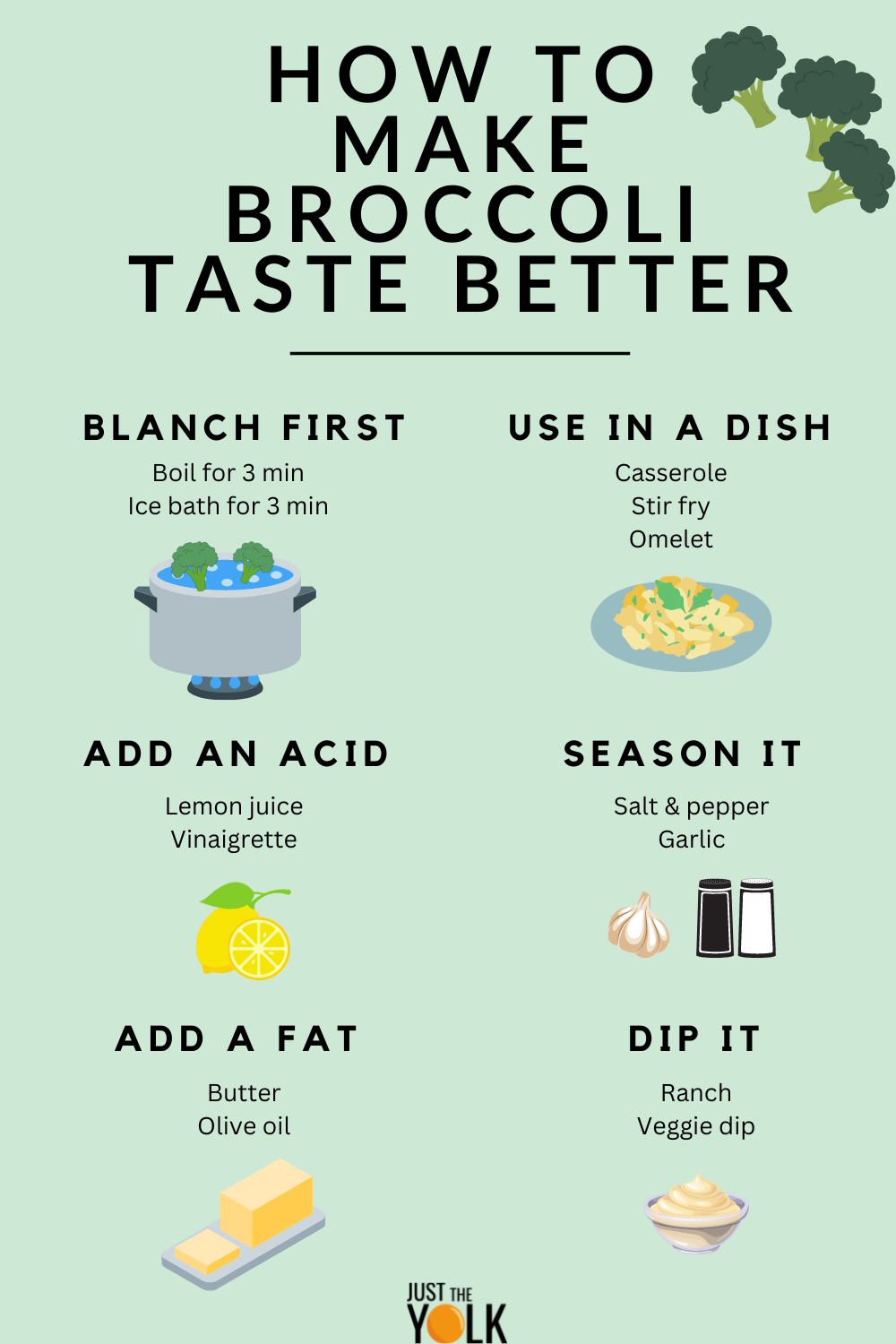The information presented was summarized from an article on Nutrivore.
The Yolk
Health Benefits of Broccoli
- Broccoli is a cruciferous vegetable, which also includes cabbages, cauliflower, and brussel sprouts
- Reduces mortality
- Improves blood sugar
- Reduces cholesterol
- Reduces inflammation
- Reduces risk of coronary artery disease
- Contains cancer preventing antioxidants
Nutrients in Broccoli
- Nutrients are at their highest when broccoli is raw
- Steaming is the next best
- But eat broccoli any which way you will
- Broccoli is a nutrient dense food – high nutrients, low calories
- Most of the B vitamins
- Vitamin A, E, C, K
- Calcium
- Copper
- Iron
- Magnesium
- Manganese
- Phosphorus
- Potassium
- Selenium
- Choline
- Low carbohydrates
- Around 2 grams protein and fiber
Antioxidant Properties of Broccoli
- Two types of powerful antioxidants in broccoli
- Glucosinolates
- Cancer prevention
- Convert to an even stronger antioxidant – sulforaphane
- Sulforaphane
- Increases antioxidants and assists detoxification
- Good for prevention of cognitive decline diseases (Alzeihmer’s)
- Good for heart health and preventing osteoporosis
How to Make Broccoli Taste Better
- A molecule in cruciferous veggies can make them taste bitter – for some us that have a certain gene (hTAS2R38)
- Adding an acid will balance the bitterness
- Lemon juice, viniagrettes
- Pair with something you enjoy or in a dish
- stir fry, casserole, pasta, soup
- Blanch first, then put in a dish
- Don’t forget to season or add a healthy fat
- Taste buds are able to adapt over time with less consumption of overly processed salty, sugary foods
Perspective
- It is well known how healthy broccoli can be – try to add it to your diet
- Start small with broccoli, even if you just eat two florets at a time
- Broccoli makes a great side dish roasted, sauteed, or added to other dishes like healthier casseroles and pastas
Resources & Research


